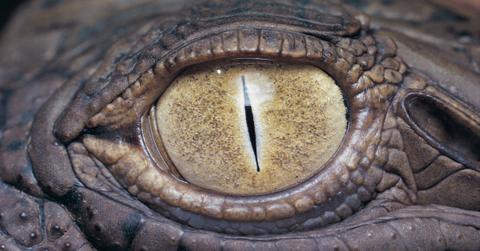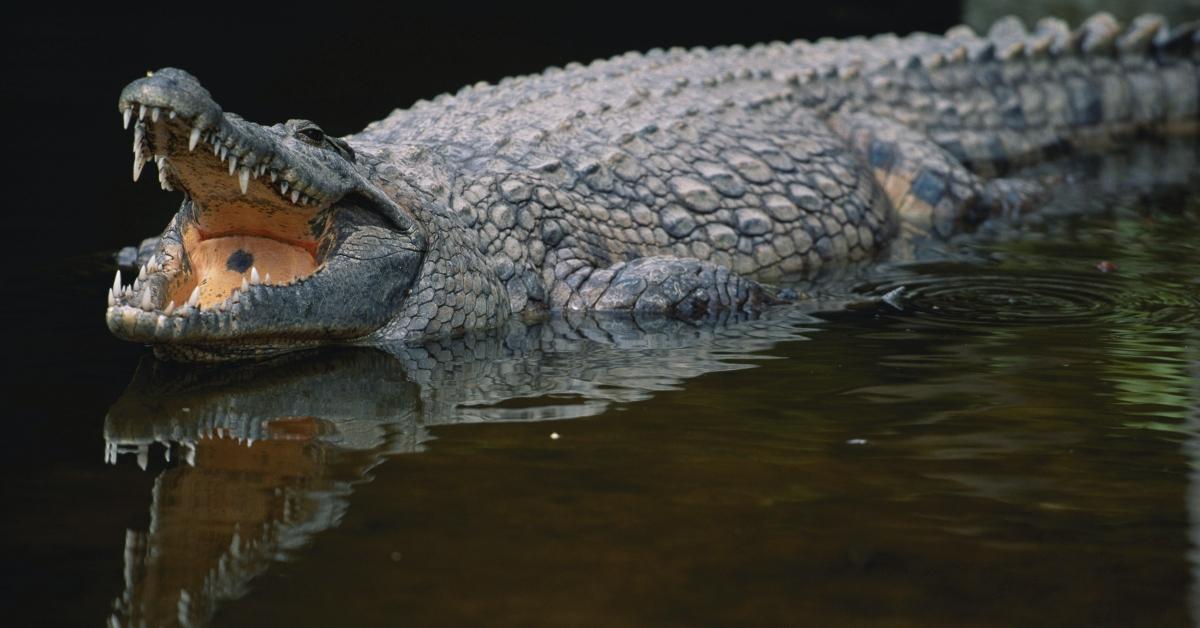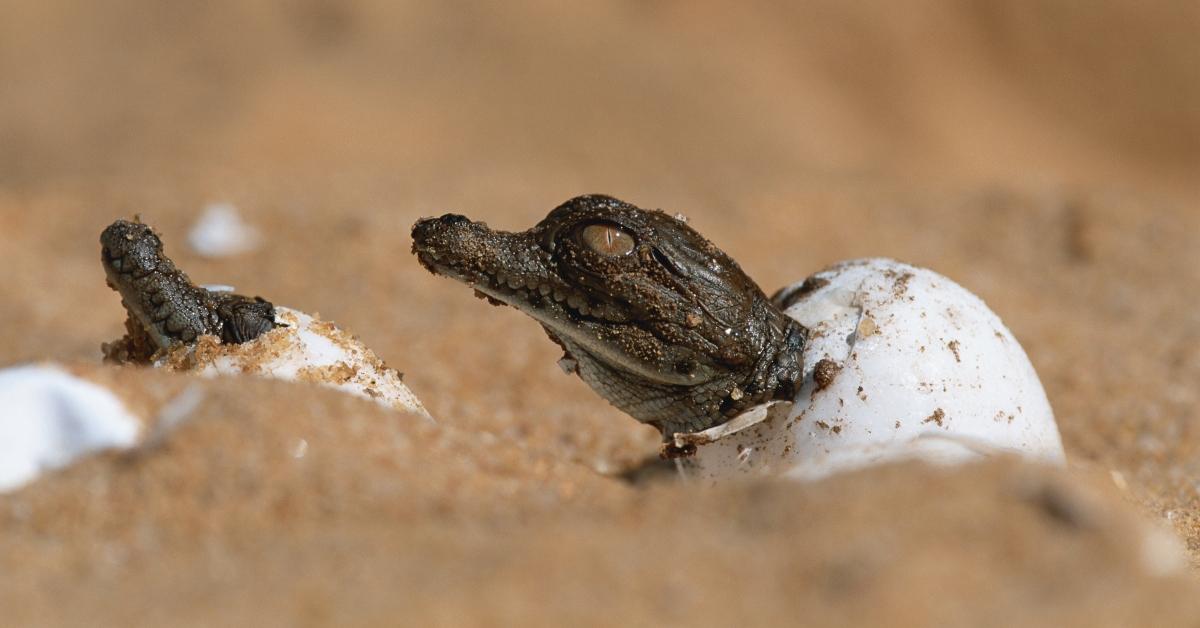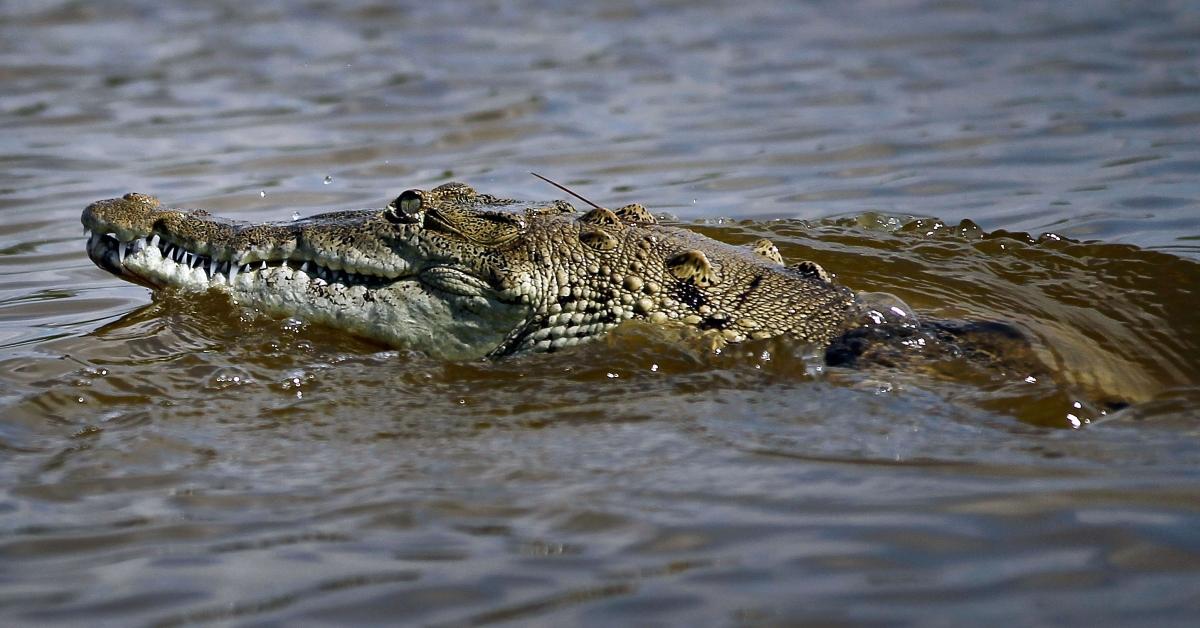Astonishing Discovery: This Female Crocodile Lays Eggs Without a Mate
Published July 5 2023, 3:43 p.m. ET

When it comes to making babies, it usually takes two to tango — even in the animal world. However, in mid-2023, scientists have discovered a female crocodile that laid eggs even though she hadn’t been around a male in over 16 years.
One of the eggs was put in an incubator and eventually yielded a stillborn baby crocodile, The New York Times reports. A team of researchers reported the crocodile virgin birth in a June 7, 2023 paper published in the journal Biology Letters.
Do crocodiles lay eggs? Here's an inside look at typical crocodile reproduction and what this virgin birth means scientifically.

So, do crocodiles lay eggs?
Typically, a female crocodile will lay eggs after mating with a male. The group of crocodile eggs is called a “clutch,” and a clutch can hold between 30 and 60 eggs. According to “The Croc Docs” at the University of Florida, American crocodile eggs incubate for 80 to 90 days before they hatch and the babies are born.
One crocodile virgin birth proves female crocodiles can lay eggs without mating.
A June 2023 crocodile virgin birth discovered by scientists proves that female crocodiles can lay eggs and produce offspring without mating.
The female crocodile who is the research subject, Coquita, had been living alone at the Parque Reptilandia Zoo in Costa Rica for 16 years when in 2018, she laid a clutch of 14 eggs.
Reptiles kept in captivity have been known to lay clutches of eggs without a male present, but those eggs are usually not viable, the Biology Letters study reports.
"It is not uncommon for captive reptiles to lay clutches of eggs, given the period of isolation from mates, these would normally be considered non-viable and discarded. These findings, therefore, suggest that eggs should be assessed for potential viability when males are absent," the Biology Letters paper reads.

Seven of Coquita’s eggs were deemed viable and put in an incubator. Only one of the seven eventually yielded a fully formed baby crocodile, but it was stillborn, CNN reports.
The crocodile virgin birth was evidence that crocodiles are capable of parthenogenesis, a form of reproduction where unfertilized eggs can still yield offspring.
According to CNN, parthenogenesis researcher Dr. Warren Booth from Virginia Tech studied the crocodile fetus’ and found its DNA was a 99.9 percent match to its mother’s, confirming that it was created through parthenogenesis.
It’s not uncommon for some animals to reproduce through parthenogenesis. Honey bees, rattlesnakes, sharks, birds, turtles, and lizards have all produced offspring through “virgin births.”
How does parthenogenesis work?
Parthenogenesis is Greek for “virgin creation.” According to the University of Maryland, Baltimore County, parthenogenesis works like this: instead of being fertilized by a sperm, the egg is “faux fertilized” by leftover cells from egg production known as polar bodies.
Offspring born through parthenogenesis are called parthenogens, and they are typically weaker than those created through mating, the Times reports. But parthenogens can help a species survive during a time when there may not be males available to mate with.

Dinosaurs also had virgin births.
Booth suggests that the crocodile may have inherited the ability to produce virgin births from their ancestors: the dinosaurs.
“It’s very likely that the dinosaurs and pterosaurs also had the ability to produce parthenogenetically,” he told CNN.
Let's hope that in the future, scientists don't get any ideas that could lead to the real-life Jurassic Park situation on our hands! We're just happy to know more about the curious creatures that are reptiles.